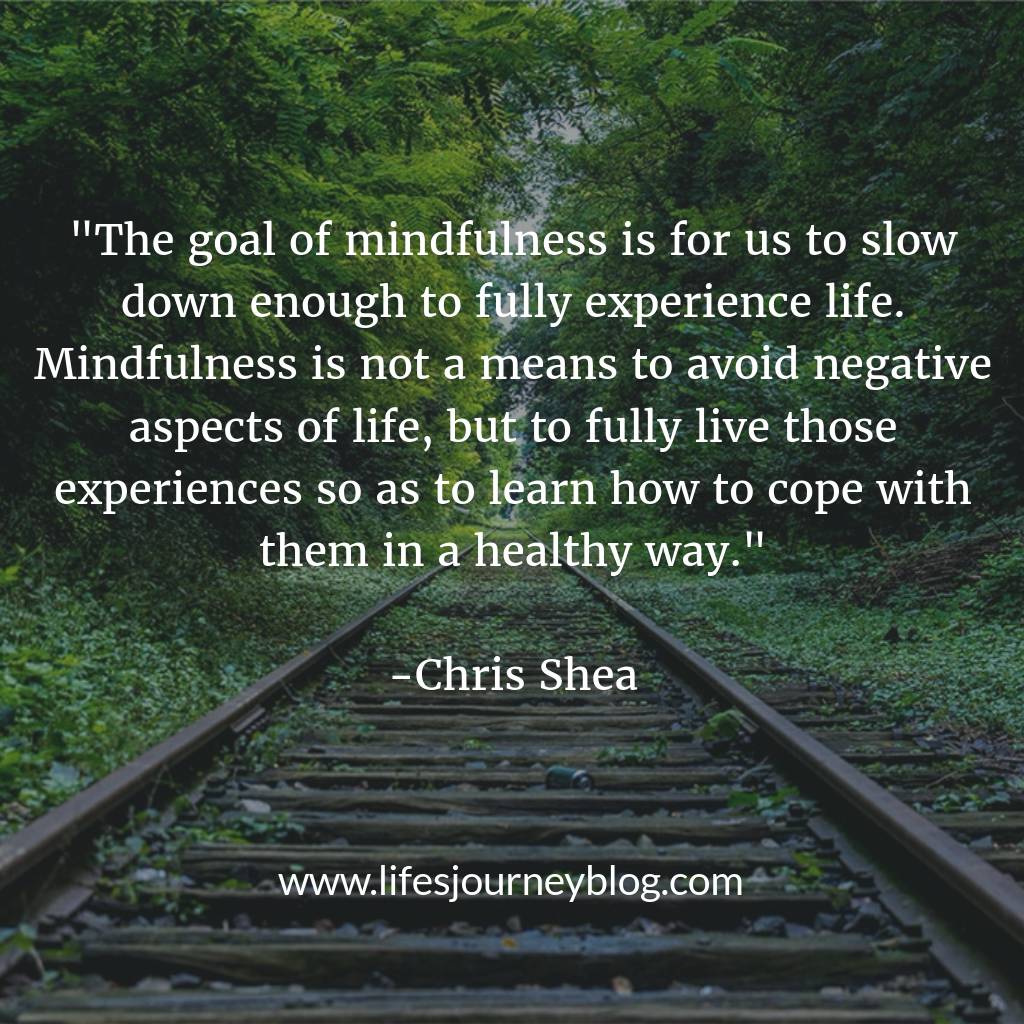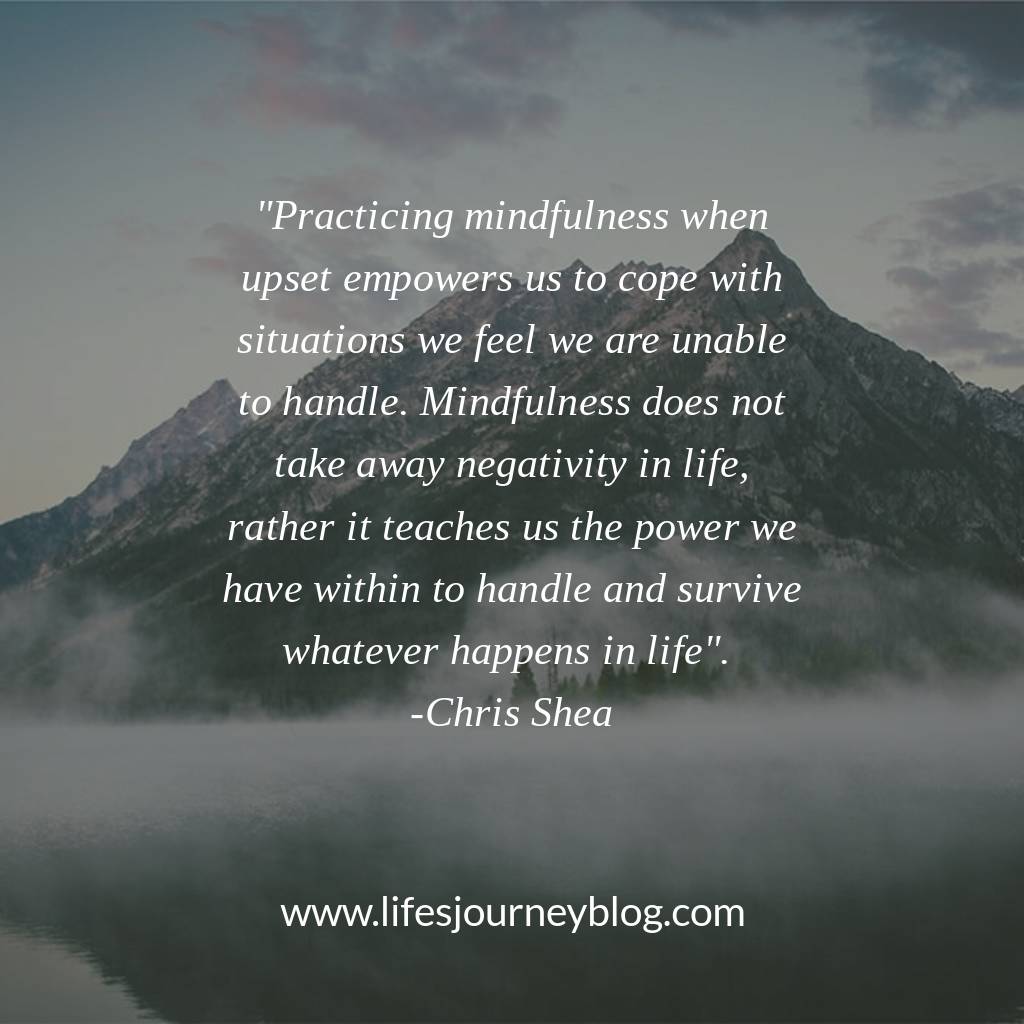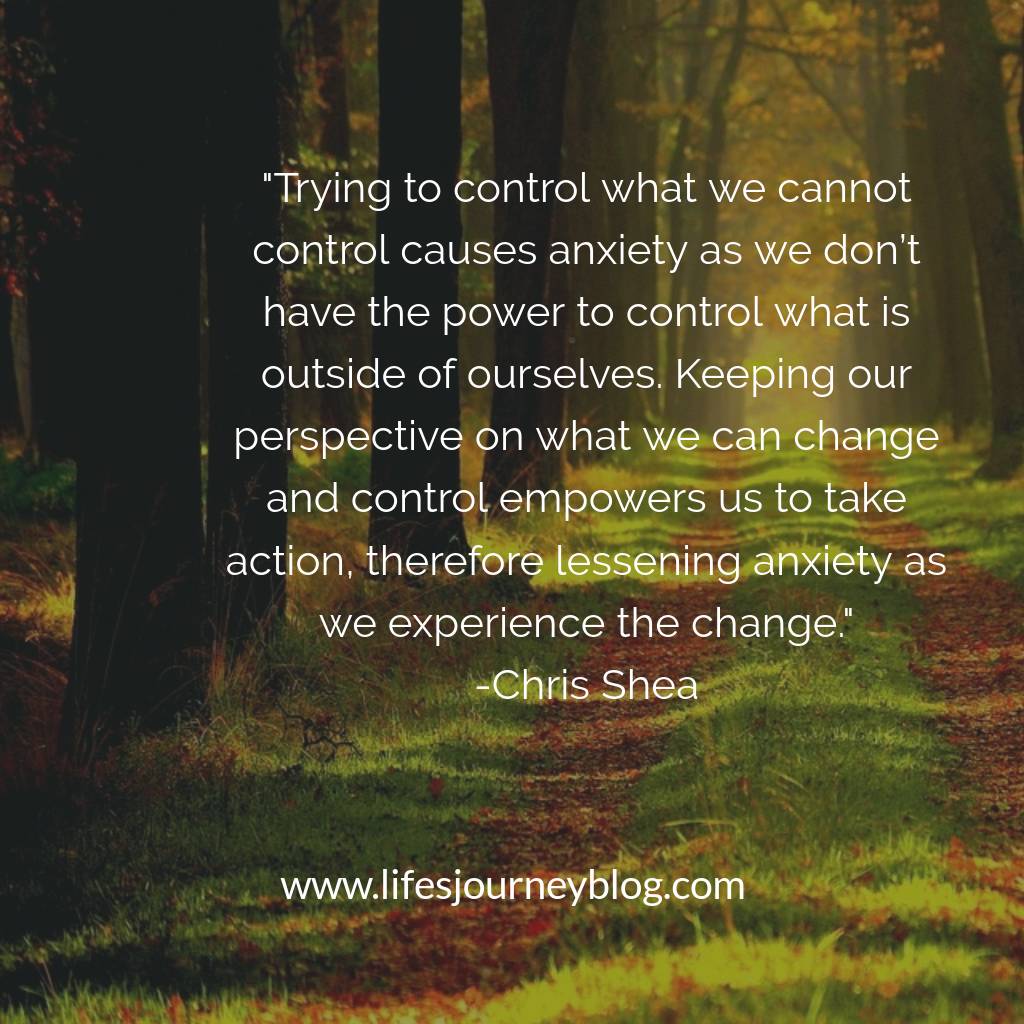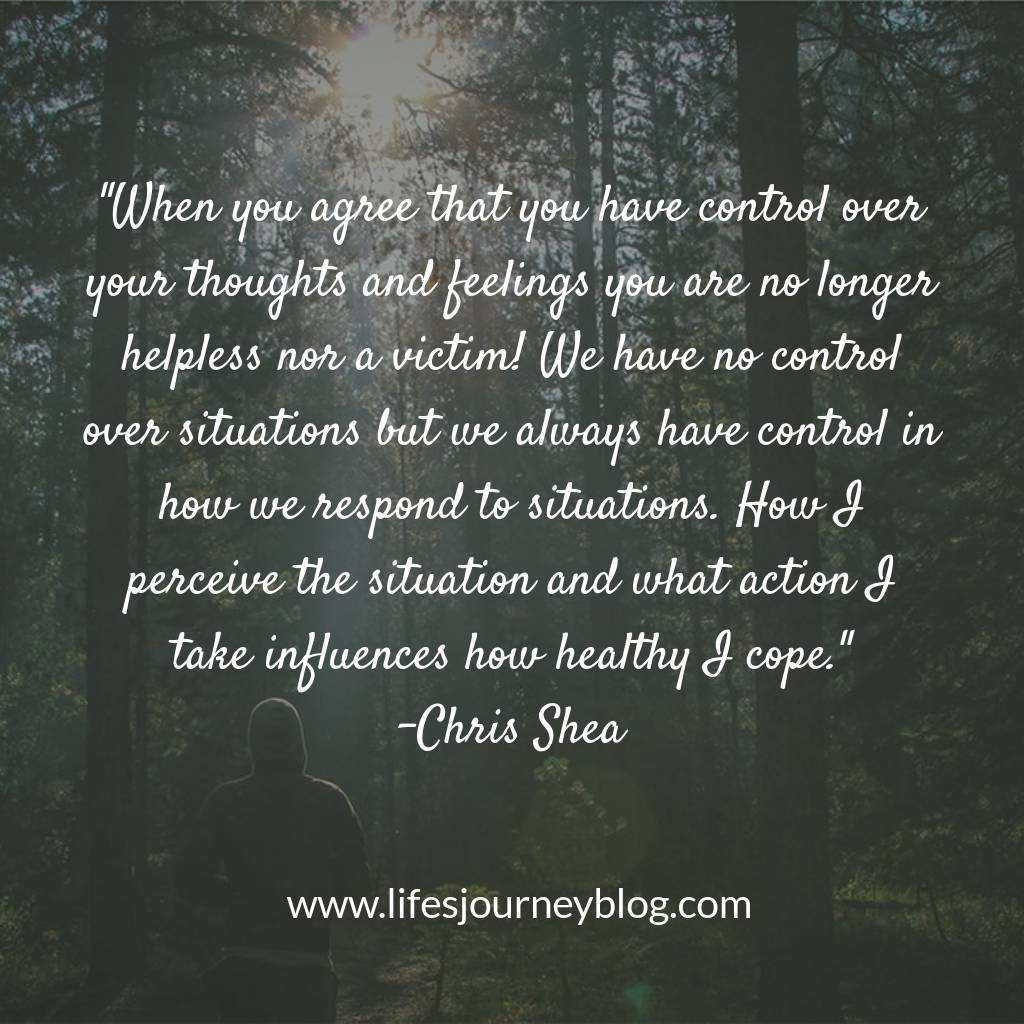Archive for August 2017
How To Find Your Inner Peace
As a counselor and a life coach, it is unfortunate that I wasn’t provided any formal education to prepare me to use mindfulness. But, after becoming personally aware of mindfulness and how it led me to find my inner peace, I made it my mission to teach people how to find your inner peace.
Historically, the arrival of mindfulness to the US is attributed to Jon Kabat-Zinn. Kabat-Zinn is Professor of Medicine Emeritus and creator of the Stress Reduction Clinic and the Center for Mindfulness in Medicine, Health Care, and Society at the University of Massachusetts Medical School. Kabat-Zinn was first introduced to the philosophy of Buddhism while he was a student at MIT. Later, in 1979, he founded the Stress Reduction Clinic at the University of Massachusetts Medical School, where he adapted Buddhist teachings on mindfulness and developed the Stress Reduction and Relaxation Program. He later renamed the program “Mindfulness-Based Stress Reduction” (MBSR), removing the Buddhist framework and eventually downplayed any connection between mindfulness and Buddhism, instead putting MBSR in a scientific context. To this day Kabat-Zinn downplays the connection of mindfulness to Buddhism, yet I feel his downplaying of Buddhism is a means of bringing mindfulness into the mainstream; which is occurring.
In 2013 Kabat-Zinn describes mindfulness as “a means of paying attention in a particular way; on purpose, in the present moment, and nonjudgmentally.”
How does the study of mindfulness translate into a daily practice to find your inner peace? A bit over 5 years ago I made a significant job change which “forced” me, as a type A person, to slow down. At the time I wasn’t yet consciously aware that I was beginning to live mindfully. As I slowed myself internally and externally, I focused my thoughts and attention to the present moment. No longer was I dwelling on my past nor anxious about my future. This was quite the change for me as I used to be the king of anxiety and worry!
It was during this time I’m my life when I discovered Jon Kabat-Zinn’s definition of mindfulness I mentioned above: “a means of paying attention in a particular way; on purpose, in the present moment, and nonjudgmentally.” Personally, the two key phrases in this definition are important to me are “on purpose” and “nonjudgmentally”. To find your inner-peace we need to consciously make the choice to spend time every day focusing our attention on what is happening around and within us. Our focus is not meant to judge what is happening, just to notice it, to experience it. As we become aware of our surroundings and inner self, we become aware of life’s joys, sorrows, difficulties, potential, and hope. In this state of focused awareness we are enabled to discover solutions.
The goal of mindfulness is for us to slow down enough to fully experience life. Mindfulness is not a means to avoid negative aspects of life, but to fully live those experiences so as to learn how to cope with them in a healthy way. Many of us try to avoid negativity at all costs, only to discover that we may be successful at avoidance for a time, but eventually we are hit once again with that which we were trying to avoid. Mindfulness asks us to be aware of all of our emotions, to feel everything, even the negativity. In so doing, we end up coping with all that life gives us, the positives and the negatives. Realizing that we can cope with life, without needing to avoid life, teaches us necessary skills for dealing with future events we will encounter.
Living mindfully is a daily practice of noticing the little things. For example, one eats mindfully by doing so intentionally, savoring each bite rather than rushing through a meal without truly tasting or appreciating the event. During your commute, or rushing from one task to another, we can mindfully (intentionally) notice the details of the flora, buildings, people, cracks in the sidewalk, etc. instead of missing those aspects of our lives.
How can mindfulness lead you to finding your inner peace? The short answer: mindfulness guides us to live in the moment, for it is only in the moment where we have “control” in our lives. By control, I mean our ability to change our thoughts and perceptions. If I allow my thoughts to remain in either the past or the future, I suffer from stress and anxiety since I have no control over those time periods. All that I can do with the past is learn it’s lessons; in the future, all I can do is prepare, yet, in the present moment I am capable of making changes to my thoughts and feelings as I feel them. Therefore, keeping my thoughts focused on the present moment allows me to feel and experience life to its fullest, while choosing the thoughts I wish to think.
Mindfulness has not only been effective for centuries, it is now proven through scientific research as a means of guiding us to finding your inner peace. I’m not just a counselor teaching mindfulness; I’m also a practitioner of mindfulness who, in the moment, has found my inner peace.
{loadmodule mod_custom,continue the conversation here or on social media}
6 Tips For Practicing Mindfulness When Upset
In an instant life can become hectic and chaotic. Just when we think we have life all figured out, and our path forward appears to be straight; adversity happens! All the talk of mindfulness, living in the moment, and meditation seem to fall short in light of the adversity and chaotic realities of life.
Platitudes are not my message. My life has had its share of ups and downs so I will not trivialize the impact adversity plays on a person’s thoughts and feelings. My message relies on my own experience of mindfulness and it’s ability to lead us to finding and living with inner peace, regardless of what life may throw at us.
Mindfulness is a word I often use in my writings and in my life coaching sessions with my clients. One of the pioneers in the mindfulness movement, Jon Kabat-Zinn, defines mindfulness as: “a means of paying attention in a particular way; on purpose, in the present moment, and nonjudgmentally.”
The two phrases in this definition which I focus on are “on purpose” and “nonjudgmentally”. To find and maintain inner peace we need to consciously make the choice to spend time every day focusing our attention on what is happening around and within us. Our focus is not meant to judge what is happening, but to notice it. As we become aware of our surroundings and our inner self, we become aware of life’s joys and potential, along with life’s sorrows and adversities. In this state of focused awareness, we are enabled to see solutions; to see hope.
Although it’s important to learn mindfulness before life throws its adversities upon you, mindfulness is not a practice which avoids or negates the negatives in life. We need mindfulness regardless of how we are feeling about ourselves and our situations. In fact, I would say that we need mindfulness even moreso during times of difficulties in our life.
Western society tends to devalue pain and suffering leaving us with the false sense that we can avoid all pain and suffering in life. Speaking from my own experience, and I’m sure you can relate, I have yet to find a way of living life which avoids all pain and suffering. Therefore, society provides us with a false hope, and increases our stress and anxiety when we fail to achieve a life without pain or suffering. The Buddha, in laying out the Four Noble Truths indicated that the principle cause of suffering is desire. In this case, the desire is to avoid all pain and suffering.
Mindfulness is a practice which teaches us how to live and cope with the joys, pains, and suffering we endure. We do not negate anything in life, rather we non-judgmentally accept what is happening and learn the best ways of coping.
Here are my six tips for practicing mindfulness when upset:
- Acknowledge that the emotion you are feeling exists. We do not want to ignore or deny any of our feelings and emotions. What we feel is what we feel. Spend time in quiet simply acknowledging what you are feeling and sit with that feeling. We do not judge the feeling as either good or bad, we simply acknowledge and name what we are feeling.
- The next step is similar to the first step of acknowledgement. In the second step we accept what we are feeling. We do not beat ourselves up that we are feeling this way, nor do we attempt to change how we are feeling. We accept that what we are feeling is our reality. A phrase which needs to be removed from our mind and speech is “ I shouldn’t feel this way.” This phrase creates anxiety since we are scolding ourselves for the reality in which we find ourselves. Who are we to say what we should or shouldn’t be feeling when the reality is we are feeling it! Right or wrong is not the issue, what is happening in the moment is what’s important. Accept how you feel in the moment and understand that this feeling is a part of you. For example, if you were feeling extremely joyful would you question that you shouldn’t be feeling that way? Of course not! So why do we judge any other feeling besides those which we say are positive?
- Once we acknowledge and accept the feelings as they are, we move to the next step of understanding that emotions are fleeting. Emotions come and go, sometimes quickly sometimes slowly, but feelings do not last forever. Therefore, experience your feelings in all of their intensity recognizing that you will never again feel this exact same way. Feelings, in their exactness, cannot be felt again. Sit long enough with your feelings and you may find that they pass during your sitting. When I worked with people struggling from cravings while trying to live in recovery from their addiction, I would ask them to sit and either look at a stopwatch as the time passed, reminding themselves that they are still in recovery, or I would refocus their attention to anything other than the craving. As a behaviorist I understand that most cravings, and even feelings, when not encouraged only last about 15 or 20 minutes.
- Investigate, within yourself, where these emotions and feelings originate. We don’t ask “why” we are feeling these emotions for the answer only leads down the path of judgement. Understanding where the feelings are coming from begins the process of learning what we are to do with the emotions. It’s not a matter of understanding why, but of understanding “what”. The answer to “what” enables us to learn and grow whereas the why simply gives us information which may or may not be helpful to our taking action. Mindfulness and meditation is not just an intellectual act, it’s a process which enables us to learn about ourselves and how we can act in a way that maintains our inner peace.
- As we examine our emotions avoid the urge to catastrophize the possible outcomes. Our mind is an imaginative storyteller, yet these stories tend to make the situations worse than reality. it’s important for us to keep focused on realistic outcomes for the future rather than imagining outcomes way worse than might be possible. A technique you can use is to ask yourself the question “what is the worst that can happen?” Then ask yourself the question “if the worst does happen what can I do about it?” Consider all the possible actions that you, and with the assistance from others, can do to cope with even the worst case scenario. Understanding that the worst case scenario is probably not going to happen, if you have a plan for the worst case then when reality happens and it’s not as bad as what you imagined you will find peace in knowing that you can cope with the situation.
- The last tip for practicing mindfulness when upset is to learn from the situation. After following steps 1 through 5 you now have the ability to step back from the situation and reflect on what you have learned from what has happened. Learn from the actions that you took which worked and learn from the actions which you took that didn’t work. Learning where our emotions originate and how best to cope with those emotions gives us the power to tackle the same situations in similar ways. Future adversity will no longer be a stressor for us since we have learned that we not only can survive the adversity but what we also can do to minimize future adversity.
Practicing mindfulness when upset empowers us to act and to cope with situations which we may feel we are unable to handle. Mindfulness does not take away negativity in our lives, rather mindfulness teaches us the power that we have within to handle and survive whatever life may throw at us.
{loadmodule mod_custom,continue the conversation here or on social media}
Steps On How To Gain Personal Power
Who doesn’t want to be in control? We spend a tremendous amount of effort and energy in controlling our lives and our environment, only to be “surprised” when our efforts fail. Even though we convince ourselves that we are in control of our life and environment, the reality is that we aren’t in control of either.
Much of our stress and anxiety is caused by our failure at controlling life. So, finding where we do have control in life reduces our stress and anxiety. We do have control over our thoughts, feelings, and beliefs about ourselves and the world around us. How I think and feel about myself influences my view, or perception, of the world.
Learning to gain personal power starts with an understanding of power. According to the Merriam-Webster dictionary, power is defined as “the ability to act or produce an effect”. In other words, our power is in our action. Power is not an outside force acting upon us, power comes from within. If we want to have personal power, we need to believe in our ability to control our thoughts and feelings, then to take action.
Many of the clients who come to me for life coaching are not only seeking inner peace, but also personal power. We spend much of our sessions talking about empowerment. Empowerment is about self-sufficiency, the ability to act on our own. We have the power to take action for our good and the good of others, therefore, we are empowered through our actions. Empowerment challenges our assumptions about the way things are and how they can be. We can change the status quo.
Challenging our assumptions about our situation allows us the freedom make changes. The purpose of personal power, as I see it, is in taking the actions necessary to make changes in our life. When something negative happens to us, dwelling on the negative only serves to make us feel stuck and a victim. The reality is that we may not be able to change what happens to us, but we do have the power to change how we feel about the situation. Therefore we have the power to take action in coping with the situation.
How do we gain personal power? Take these steps:
- Spend at least 10-20 minutes daily in quiet (or at least with minimal distractions) so as to gain insight about yourself. We need to learn about our thoughts, feelings, and desires without judging them. Simply spend the time to get to know yourself.
- Practice daily changing those thoughts which lead you away from your happiness. Recognize how the changing of your thoughts change your emotions and your behaviors. Use the experience to believe in your power and ability to control your thoughts and emotions.
- When adversity happens, and you find yourself stressing over the situation, make two lists; one list for those things in the situation you have control over, and another list for those things in the situation you have no control over. Focus your actions and energy on changing those things you have control over, ignoring the other list. Ignoring what we can’t change and taking action where we can is empowering. Don’t focus on changing the situation, keep your focus on changing your thoughts and actions.
- Repeat steps 1 – 4.
A key to gaining personal power is in believing that we can’t change the situation, but we can always change our outlook, or our thoughts, on the situation. Trying to control what we cannot control causes anxiety as we don’t have the power to control what is outside of ourselves. Keeping perspective on how I feel and what I can do on the inside makes all of the difference. Keeping our perspective on what we can change and control empowers us to take action, therefore lessening anxiety as we experience the change.
Understanding the power we have within, and taking the actions needed to make changes in life, allows us to overcome the obstacles we face. When life’s obstacles happen we will no longer fear them for we believe in the power that we have to make changes within us which will change our perspective on self and the world around us. We have not only gained personal power, but as a result, we are now empowered to face ourselves and the world.
{loadmodule mod_custom,continue the conversation here or on social media}
Successfully Coping With Adversity
In today’s day and age, who hasn’t been affected by adversity of some sort? It is the rare yet fortunate person who lives life unaffected by any pain or suffering. Living life means we take chances and place our trust and faith in other people and society. This trust in others can be betrayed while some of the chances we take don’t work out the way we hoped or wanted. This is why we suffer from adversity.
I reviewed various dictionaries for the definition of adversity and found “misfortune” and “a difficult or unpleasant situation”. I feel that it’s important for us to keep in mind that some adversity happens to us, while some adversity may be caused by us. Nonetheless, I firmly believe that it is not the adversity which defines us, rather, it’s our way of dealing with the adversity which is most important. The question is not “how do I avoid adversity?” The question is “How best can I cope with my adversity?” We can’t escape adversity, but how we respond to the adversity will determine whether or not we are happy and at peace, or miserable and in turmoil.
The first step in learning to cope is in learning to change our perspective. Our perspective about ourselves and the world around us is our reality. I will spare us a philosophical discussion on reality, except to say that reality is based on our perception of our world. Think about it: if I don’t feel positive about myself, then my view of my world will not be positive. How can it be? If I’m miserable I won’t appreciate the positive and beautiful aspects of our world.
When adversity enters our world, our perceptions of the adversity, our world, our family, and oneself will determine how we cope with the adversity. It’s important for us to recognize our perceptions and work on changing our negative views and thoughts. I’m not saying we are to deny or avoid the negatives in life; they are real and a part of who we are. What I am saying is that dwelling on the positives in life will influence our perceptions. A favorite quote of mine is “there are no problems, only solutions.” (John Lennon) I agree with the sentiment. If we focus on “solution-thought” there are no problems only the solutions; that on which we focus our attention is our reality.
I encourage you to spend time each day practicing changing your thoughts to focus on the positive and on solutions. Don’t deny the negative, but re-think the situation.
The next step in coping with adversity is in training our thoughts to focus on the positives in life. As previously mentioned, our perception is our reality, and our reality influences our thoughts (and vice versa). So, changing our thoughts will change our reality and our feelings. We don’t ignore or hide the negatives in life, but what is it that becomes our main focus; the negatives or the positives? In the latter, we still acknowledge the negative, but we focus on what we can do, on the solutions needed; not on what we can’t do or change.
As we reflect on life we notice that most days there are positives and negatives at the same time. We become anxious or overwhelmed as we focus on future problems or negatives because we can’t control the future. The same is true for our regrets of the past. We can’t control our past so we feel anxious about the past. Focusing our thoughts on the future and on the past cause our adversity to feel more intense since we are focusing our energies on negatives and things we can’t control.
So, focusing our energies on the positives, and on the present moment, will help us to to feel less intense about our adversity. The key, as I see it, is control. That which I have control over won’t bother me nearly as much as that which I don’t have control over.
The next step in coping with adversity is in understanding that we are not victims of the adversity. Victimhood, the feeling that my life is out of my control, causes us to fall into a sense of helplessness. If you convince yourself that “the world is out to get me”, or that the situation is forced upon you, you then convince yourself there is nothing you can do about it.
Once you feel out of control with no options for action, the adversity takes over. But this does not need to happen! This is the reason I have been talking about changing perspective and changing our focus to the positives. Here’s the key in one easy phrase WE HAVE CONTROL OVER OUR THOUGHTS AND FEELINGS!
When you agree to that statement, that you have control over your thoughts and feelings, then you admit that you have control! Since you have control you are no longer helpless nor a victim! We may, in reality, have no control over situations we find ourselves in, but we do have control, always, in how we respond to situations. How I perceive the situation and what action I take influences how healthy I am coping.
We can’t avoid adversity, don’t make that your goal. The goal is in how well I can keep control of my thoughts and feelings. Before adversity happens, practice this. Take time daily to refocus your thoughts to the positives and to solutions. The more often you do this the easier the task becomes. And when adversity happens, do the same thing; refocus your thoughts on positives and solutions. As I quoted earlier “there are no problems, only solutions”.
I admit that this is not always an easy task, and yes, we will fail at it from time to time. Be easy on yourself when you do. Then get up, refocus on the positives, and find solutions which will help the situation. Remember, we can’t always change the situation itself, but you can always change how we respond to the situation.
{loadmodule mod_custom,continue the conversation here or on social media}




